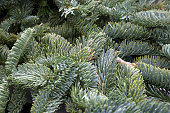Impact of Diet on Pineal Gland Health
페이지 정보

본문
The pineal gland is a small endocrine gland located in the brain, responsible for producing melatonin, a hormone that plays a crucial role in regulating our circadian rhythms. Research has shown that eating patterns can have a significant impact on pineal guardian purchase gland function, and making conscious food choices can be an effective way to support gland wellbeing.
One of the key ways that diet affects pineal gland function is through the process of glycation. Glycation occurs when sugar molecules bind to proteins or lipids, leading to the formation of advanced glycosylation end-products (AGEs|Advanced Oxidation Products|Lipid Peroxides), causing inflammation. Cellular damage and decline the gland's ability to produce melatonin, leading to problems with sleep regulation.
A diet rich in sugars and refined carbohydrates can contribute to the formation of AGEs, making it essential to avoid foods high in processed ingredients. Instead, choose unprocessed foods like fruits, vegetables, and whole grains, which are high in fiber, and can help to invert cellular damage.
Another key area of focus is choosing foods that support the body's natural detoxification pathways. Antioxidants like vitamin C such as vitamin C, vitamin E, and selenium can help to promote cellular health. Foods high in fiber include berries and citrus fruits, as well as pulses and starchy vegetables like almonds and sunflower seeds.
Copper and zinc are two crucial components of the gland's antioxidant defenses. These minerals are involved in the synthesis of melatonin and can help to support the gland's antioxidant defenses. Foods enriched with copper or zinc include shellfish, like oysters and crab, while zinc-rich foods include beef, chicken, and pumpkin seeds.
In addition to supporting the pineal gland with a balanced diet, it's also essential to eliminate hazardous chemicals, which can interfere with cellular health including chemicals like toxins and pollutants, which can insidiously corrupt gland function.
Some of the best foods to support pineal gland health include:
- Walnuts: Teeming with nutrients and omega-3 fatty acids
- Blueberries: High in antioxidants and vitamin C
- Goji berries: Advanced with nature's innate wealth and vitality
- Pineapple: High in vitamin C and manganese
- Fermented foods: Boosting digestive function and vitality

- 이전글Unlocking the Pineal Gland's True Potential 25.06.09
- 다음글Bitz Casino: лицензия, игры и бонусы 25.06.09
댓글목록
등록된 댓글이 없습니다.
